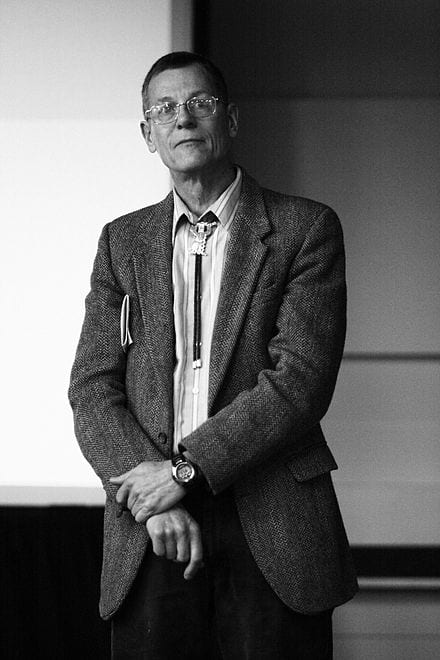
(Wikimedia Commons public domain image)
A couple of quotations extracted from Michael Augros, The Immortal in You: How Human Nature is More Than Science Can Say (San Francisco: Ignatius Press, 2017):
I appreciate it when atheists forthrightly declare the implications of their worldview, without sentimentality. Here, for example, is the late Cornell historian of science William Provine (1942-2015), a specialist in the development of population genetics and evolutionary theory:
Modern science directly implies that the world is organized strictly in accordance with mechanistic principles. There are no purposive principles whatsoever in nature. There are no gods and no designing forces that are rationally detectable. . . . Modern science directly implies that there are no inherent moral or ethical laws, no absolute guiding principles for human society. . . . When I die I shall rot and that is the end of me. There is no hope of life everlasting. . . . There is no ultimate meaning for humans. (cited on page 10)
It is striking to me that both atheists and theists can join in ecumenical agreement that Dr. Provine no longer holds the views expressed immediately above.
And now, Michael Augros himself:
The Russian cosmonaut Yuri Gagarin was the first person to go out into space, having orbited Earth in 1961. Not long afterward, Soviet leader Nikita Krushchev said in a speech at a gathering of the Central Committee of the Communist Party of the Soviet Union that “Gagarin flew into space, but didn’t see any god there.” Let us suppose that Krushchev was not joking, but took this to be a serious blow to belief in the existence of God. Even if there happened to be some reason to doubt that Gagarin ever really flew into space, that would not be the sole or chief thing wrong with Krushchev’s statement. The main problem with it is the tacit assumption that if God exists, then one would see him once one got above the clouds. Similarly, even if today’s biological science were fraught with misconceptions, ambiguities, or slight evidence for its claims, these could not be the only thing wrong with saying that modern biology has never found any supernatural trait in Homo sapiens. Who expected it to? If you have an immortal soul, should you expect it to show up as a white spot somewhere on an X-ray or on a picture produced by an MRI scan? Should the trait of immortality be encoded somewhere in your genome? Of course not. Yet such are the tools and terms of biology. And they are quite excellent for their purposes, too. Only, they don’t function very well as detectors of immortality, or finders of souls, whether such things exist or not. To the degree that biology restricts itself to terminology that is fully reducible to that of chemistry and physics, of course its methods will be inept for determining whether you have a soul and what its nature might be. (12)












